News
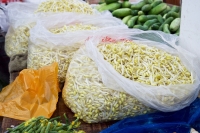
27/01/2022
Sprouted seeds or beans, such as alfalfa; mung bean; pea to name a few, are tender, young plants that deliver on taste and crunch. Like other fruits and vegetables, they contribute to a heathy diet and are important ingredients in cuisines from around the world. Yet, they are not grown or produced like other fruits and vegetables. The growing conditions for sprouts are ideal for the proliferation of foodborne pathogens, including Shiga toxin-producing Escherichia coli (STEC); Salmonella spp.; and Listeria monocytogenes.
As such, a subset of experts from the Joint FAO/WHO Expert Meeting on Microbiological Risk Assessment (JEMRA) convened a meeting in November 2021 that...
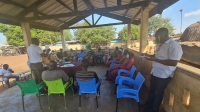
26/01/2022
Different parts of the world have their own – often very culturally specific – problems that also require local solutions. A person who is acutely aware of this is Blaise Ouattara, Food Safety and Quality Officer at the FAO Regional Office for Africa.
Faced with a number of issues in this vast territory – from the often-unsanitary handling and preparation of meat to difficulties in obtaining potable water – Blaise and his team of on-the-ground experts work tirelessly to change things for the better.
“It can be a long process,” Blaise reflects. “Changing peoples’ ways of doing things is not easy. [Yet]...
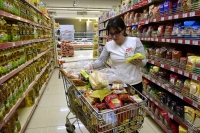
13/01/2022
The Food and Agriculture Organization of the United Nations (FAO) and World Health Organization (WHO) experts convened another successful meeting on food allergens. This was the final session of a three-part consultation on risk assessment of food allergens to help guide the future work of the Codex Alimentarius Commission. In previous meetings, the experts:
achieved consensus on a recommended revision to the list of global priority allergens; and
established threshold levels for these priority allergens in foods and reviewed available analytical capabilities for the monitoring of food allergens.
More information on these two previous meetings is available here and
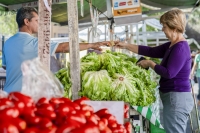
24/11/2021
Fresh fruits and vegetables are an important part of a healthy diet and are protective against many chronic health conditions. Yet, fresh fruits and vegetables contaminated with foodborne pathogens (e.g. bacteria, viruses, protozoa, helminths) have resulted in numerous outbreaks of foodborne disease and trade disruptions around the globe.
The Joint FAO/WHO Expert Meeting on Microbiological Risk Assessment (JEMRA) convened a meeting this year to compile and analyse the relevant scientific data and evidence on preventing and controlling the microbiological hazards in fresh fruits and vegetables, including pathogenic E. coli in leafy vegetables. The scientific advice and expert recommendations generated from this...

19/11/2021
Just as World Antimicrobial Awareness Week (18-24 November) opens, the 44th session of the Codex Alimentarius Commission (CAC) closes with two momentous international decisions on reducing antimicrobial resistance (AMR). Over the course of four years, the Ad hoc Codex Intergovernmental Task Force on Antimicrobial Resistance (TFAMR) developed science-based guidance on the management of foodborne antimicrobial resistance, reviewing and revising the Code of Practice to Minimize and Contain Antimicrobial Resistance (originally adopted in 2005) and developing Guidance on Integrated Monitoring and Surveillance of Foodborne Antimicrobial Resistance. The Codex Alimentarius Commission has now adopted the Code of Practice and Guidance, incorporating them...
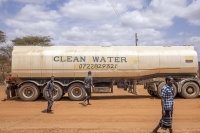
15/11/2021
Water is a diminishing resource globally and not all primary producers and processors of food have access to adequate supplies of safe water. Water often comes into direct contact with food as it is used for various purposes throughout the food chain. It is not always possible for potable water to be used at all stages of food production and processing, nor is it necessary. However, it must be fit-for-purpose and not compromise the safety of the products we consume. In the summer of 2021, the Joint FAO/WHO Expert Meeting on Microbiological Risk Assessment (JEMRA) convened...

12/11/2021
In the final week of the UN climate summit known as COP 26, experts from the Food and Agriculture Organization of the United Nations (FAO), the World Health Organization (WHO), the UN Environment Program (UNEP) and the World Organisation for Animal Health (OIE) gathered in an online event to discuss on One Health as an opportunity to better support adaptation and mitigation efforts to cope with climate change.
In the panel discussion Vittorio Fattori, Food Safety Officer of FAO, stressed the importance of providing science and evidence on the impacts of climate change on food safety, that for too long have...
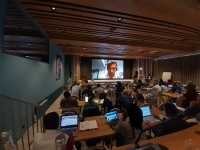
09/11/2021
Jorge Pinto Ferreira, FAO Food Safety Officer, gave an online presentation, on 3 November 2021, during the 2nd “AMR Course a One Health Challenge”, co-organized by Mérieux Foundation & Université de Paris, to explain how cross-sectoral collaboration can make a difference in reducing antimicrobial resistance (AMR).
The one-week course faculty are experts from a broad range of disciplines, while the more than 30 participants tuned in from different parts of the world, including several low and middle-income countries.
Pinto Ferreira focused on interventions at the food production level, what agri-food producers can do, from a One Heath perspective, to use antimicrobials responsibly....
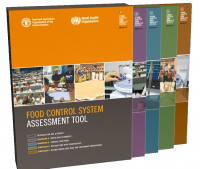
08/11/2021
FAO and WHO are hosting an online event to present the recently developed food control system assessment tool. This launch event is to:
introduce this new and comprehensive assessment tool; and
increase awareness on the benefits of assessing a national food control system.
The event is designed for senior officials, as well as technical officers from competent authorities involved in the operation of a national food control system. It is nonetheless open to anyone with an interest to find out more about the FAO/WHO food control system assessment tool.
During the event, you will learn about the tool content and structure, the steps of...
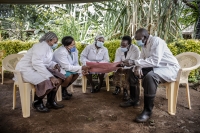
03/11/2021
A veterinarian, a physician and an environmental scientist walk into a bar... It sounds like the beginning of a bad joke, but in reality, it could be the beginning of great idea. The causes of today’s most pressing problems - such as the climate crisis, hunger, poverty and pandemic disease - are extremely complex, and interrelated.
With these words Jeffrey LeJeune, FAO Food Safety Officer, began to explain what One Health is all about and how it releates to food safety. One Health provides an opportunity for people of different sectors and disciplines to join together to promote better health...
Stay up to date and connect to our RSS feed!
